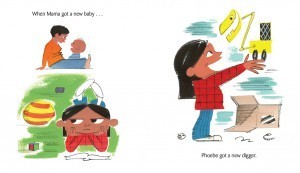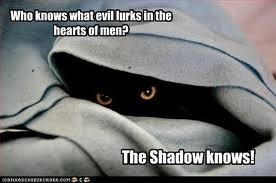Tricia Springstubb's Blog, page 15
December 20, 2012
Real Life
(Not that I could ever do a headstand, not in a million years)
For the past few days, I haven’t been able to do any real writing. I’ve done the final edits on an essay that will appear in February, and started gathering thoughts on a review I’ll do of the new Karen Russell collection of stories, “Vampires in the Lemon Grove” (spoiler alert: terrific). I’ve prepared for and done an interview for something I’d really love to get the chance at (!!) On a walk I thought of the first line for a short story: “Lola was water skiing, a thing she would never attempt in her true, waking life.”
And there’s been a lot of “real” life: trips to the airport, subbing at the library, a birthday cake to bake, the cleaning up of cat vomit (who ate that sugar cookie, huh?), and much standing in lines while telling myself that the poor person behind the counter is the one I should feel sorry for.
But no real writing. No startling myself with what I think. No unbidden tumble of images, or sudden, lovely connection between disparate parts. No file rasping against my brain, no urge to stand on my head to see if that might dislodge the words I need. When you’re used to writing every day, not being able to sets the muscles twitching. In some weird way, your real life starts to feel inauthentic. Where’s the core? What’s it all about, Alfie?
It’s a commonplace in writing workshops to say, “You don’t find the time to write–you make it.” Simple to say! Lucky for us as we rush about, the stories remain curled up in their lairs, waiting.
December 13, 2012
I thought we’d survived the End of the World on 12-12-12...
I thought we’d survived the End of the World on 12-12-12, only to discover that no, it’s scheduled for 12-21-12. Meanwhile, this is is my least favorite time of the natural year anyway, with the dwindling, gray days and black, icy nights. So it’s easy enough to go anti-jolly curmudgeon and think about things like:
–My dining room ceiling which, after a plumbing near-disaster over Thanksgiving, is seriously considering falling in
–The empty house across the street which had its copper pipes ransacked, a much too familiar story here in Cleveland
–How much it costs to mail things and how long it takes for them to get there
–The enormous temptation to order all my gifts from the evil empire of Amazon
–Et cetera
Lots of studies have confirmed what kids are all too happy to demonstrate to parents: the bad times stick in the mind more strongly than the good. And yet, and yet. Yesterday two things blew all the unpleasant stuff clean away, at least for now:
–I got to hold a real, live copy of PHOEBE AND DIGGER.
–I found out all my kids, even the one who just started a new job, will get to come home for Christmas.
Sometimes short term memory is a lovely thing.
December 6, 2012
Raw Deal
 For a couple of decades now, I’ve reviewed books for our newspaper, the Cleveland Plain Dealer. It’s a wonderful gig. For one, I get paid to read—I mean! But even better, it forces me to read in a responsible, accountable, un-lazy way, which is not, trust me, true all the time.
For a couple of decades now, I’ve reviewed books for our newspaper, the Cleveland Plain Dealer. It’s a wonderful gig. For one, I get paid to read—I mean! But even better, it forces me to read in a responsible, accountable, un-lazy way, which is not, trust me, true all the time.
How it works is: I go downtown to the paper’s offices, where Book Angel Karen Long ushers me into the book room, packed floor to ceiling with galleys whispering, “Read me! No, read me!” I stand on a stool; I crouch low; I pull out book after book, trying to decide if I’m qualified to judge it, and if I’m likely to enjoy it. Because, contrary to what people think, writing a bad review is a nasty, unsavory experience. (Okay, okay, now and then it can be wickedly satisfying).
Karen decides which of my choices best fit her pages, gives me deadlines, and off I go. And nearly every time I write a review, someone tells me—in Zagara’s grocery store, at Cumberland Pool, in Phoenix Coffee—that they’ve read it. They almost always say they’d like to read the book, even if I’ve written a mixed review.
I’m no Oprah, bless her holy name, but I love knowing people not only read reviews but remember and think about them. And Cleveland lover that I am, I’ve been exorbitantly proud that our paper continues to publish original, not syndicated, book reviews, especially since there’s no ad revenue to be gained from them, the way there is with film.
No surprise, the Plain Dealer has been in financial trouble for years now, and things just got way worse. Its absentee-landlord, Advance Publications, has already made huge cuts and recently announced even more—not just cuts, really, but death blows. At best, it seems, the paper will go to three days. Subscriptions will dwindle, and it will die.
This is a pitifully common story these days, but the New York Times saw fit to cover it recently. The Times fought off its own obsolescence with a wonderful, subscription website, but according to Plain Dealer reporters, corporate Advance won’t let them do the same.
I’m from the days when you found your job and apartment in the newspaper. My family got not one but two papers a day. Every night my father would come home from the city with a copy of the NY Post, which my mother called a rag and I loved to peruse for the juicy columns and sexy cartoons. But things change. I get it. I’m actually a stalwart foe of nostalgia, yet it’s been painful to watch our local paper shrink. Sometimes I think I’m picking up a single section only to realize I’m holding the whole edition. I can’t imagine how we’re going to get our local news in the future. There’s a big difference between a trained journalist and a blogger. There’s an ongoing gap between what the NY Times (to which we also subscribe) deems news and what affects us daily in the Rust Belt. Last year the PD unearthed and relentlessly pursued a story of massive political corruption. It’s doing the same right now with what looks like a case of police homicide. Who’s going to do that in the future? Don’t even mention TV “news”.
I’m going down to the book room today. I’m expecting a funereal atmosphere, but I’m really looking forward to giving some very smart, dedicated people hugs.
November 29, 2012
Nice news
This week’s mail held a treat: the news that I was selected to receive a full fellowship to the Vermont Studio Center. This means that, come October, I’ll get to spend four weeks living here
and writing at a desk in a private studio like this
and taking walks in woods that look like this
and because it’s a place for visual artists as well, hanging out with people who make cool stuff like this
I’m reading the resident handbook, enjoying lines like “Breakfast, lunch, and dinner are provided seven days a week” and “Each of the studios overlooks the Gihon River”. And I love how the list of local services includes bookstores, thrift shops, and welding supplies.
I’ve never done anything like this before. The idea of leaving my oh-so-familiar life and oh-so-beloved husband, and challenging myself to concentrate totally on my work, has equally terrified and intrigued me. But lately I’d been feeling like now or never. So the news is good.
November 22, 2012
The day after
Two of my grown-up daughters are home, asleep upstairs in their childhood beds. Only one word for how that makes me feel: blissful. (Bliss and bless–the lovely twins!)
Today I have a post over at the reading/writing blog I sporadically contribute to: www.fromthemixedupfiles.com
And because my own writing process remains mysterious to me, and because I love lists, I’m thankful to the YA writer Lanie Taylor for these 5 writing tips, which I intend to take to heart (especially # 5):
1. Know what you love. Try imagining the book that would light your heart and mind on fire if you came across it in a bookstore—the one that would quicken your pulse and keep you up all night reading. What would it be? Details, details: when, where, what, who? Think it up, imagine it fully, then bring it forth. That’s the book you should be writing.
2. Never sit staring at a blank page or screen. If you find yourself stuck, write. Write aboutthe scene you’re trying to write. Writing about is easier than writing, and chances are, it will give you your way in. You could try listing ten things that might happen next, or do a timed freewrite—fast, non-precious forward momentum; you don’t even have to read it afterward, but it might give you ideas. Try anything and everything. Never fall still, and don’t be lazy.
3. Eliminate distractions. Eliminate internet access. Find/create a place and time where you won’t be bothered. Noise-canceling headphones are great. Hotel-writing-sprees are even better if you can make that happen every once and a while: total dedicated writing time. During my second draft pass on my last book I made 20,000 words happen in a week, which is practically supernatural for me, and it would never have been possible without three nights in a hotel in my own city. It’s an incredible splurge, and a huge liberation, and you might just deserve it!
4. Get your characters talking. Dialogue is the place that books are most alive and forge the most direct connection with readers. It is also where we as writers discover our characters and allow them to become real. Get them talking. Don’t be precious. Write dialogues. Cultivate the attitude that every word you write need not end up in the book. Some things are just exercises, part of the process of discovery. Be willing to do more work than will show. The end result is all that matters. Be huge and generous and fearless.
5. Be an unstoppable force. Write with an imaginary machete strapped to your thigh. This is not wishy-washy, polite, drinking-tea-with-your-pinkie-sticking-out stuff. It’s who you want to be, your most powerful self. Write your books. Finish them, then make them better. Find the way. No one will make this dream come true for you but you.
Down with pinkies! Up with machetes! Grab that wishbone and go!
November 15, 2012
PEEK!
As a pre-holiday treat for myself and I hope for you, I’m sharing the first bits of art from my picture book PHOEBE AND DIGGER, illustrated by Jeff Newman and pubbing with Candlewick this coming March.
Jeff is a witty genius. His bright, retro-palette and use of white space has tickled me from the very earliest sketches.
Here are the first two pages. Click on the art to make it bigger.
And two pages later on, after Phoebe and Digger have wreaked considerable chaos on the playground:
Don’t you adore Phoebe and Mama’s fashion sense?
Working with my Candlewick editor and art department has been a dream. They’ve solicited and respected my input all along the way–and that’s not always how it goes! I thank my lucky stars I’m getting to work with them again on NOT EVEN CODY, due in 2014.
PHOEBE AND DIGGER. Text copyright © 2013 by Tricia Springstubb. Illustrations copyright © 2013 by Jeff Newman. Reproduced by permission of the publisher, Candlewick Press, Somerville, MA.
November 9, 2012
Out of Bad…
My daughter Phoebe had a legendary second grade teacher. Mrs. Dooner took the kids for long afternoon walks, pointing out their neighbors’ gardens and houses, the shops and churches, giving names to trees and architectural details (Phoebe, who by some odd chance became an architect, taught me the difference between a Doric and a Corinthian column), giving the children eyes to see their own little slice of the world as wondrous and rich. She also taught them to memorize poetry–imagine 25 second graders chanting “Tiger Tiger, burning bright…” And she was a font of words to live by. My favorite phrase, because I’ve had cause to use it so often, is “Out of bad comes good.”
 I thought of Mrs. Dooner again this last week, as my family on Long Island went without power day after day (one of my brothers is still in the dark as I write). In the last year or so, a number of picture books about what technology has done to family time have been published. John Rocco’s “Blackout” , Matthew Cordell’s “Hello Hello” and Peter McCarthy’s “Chloe” are all delightful takes on how kids can get short-changed by our addiction to devices. In each book, it’s the youngest member of the family who leads the way back to old-time togetherness.
I thought of Mrs. Dooner again this last week, as my family on Long Island went without power day after day (one of my brothers is still in the dark as I write). In the last year or so, a number of picture books about what technology has done to family time have been published. John Rocco’s “Blackout” , Matthew Cordell’s “Hello Hello” and Peter McCarthy’s “Chloe” are all delightful takes on how kids can get short-changed by our addiction to devices. In each book, it’s the youngest member of the family who leads the way back to old-time togetherness.
But those are just books, right? Hmm. My youngest sister has two girls, 7 and 10. One night when I talked to them, they were both happily reading by flashlight. After that night’s take-out pizza, they were going to play Monopoly by the fireplace. And then they and their parents would crawl into their sleeping bags on the living room rug and snuggle down together.
After a week of this, workers from Michigan restored their power. My sister and her family stood on their front porch and cheered the heroes. It was a hot food, hot bath night, and my sister looked forward to collapsing in front of the TV.
You can probably guess the rest. It was the girls who wanted one more night of board games and camping out together. The novelty had turned into something else. Hard as it can be to find the good, it’s almost always waiting on the dim edges or even at the heart of the bad. Thank you, Mrs. Dooner, for that lesson.
******************************************************************
Here in Ohio, the sun shone and the sky was blue for the first time in 10 days on November 6. Just saying.
November 2, 2012
Blow, ye winds…
“Strike flat the thick rotundity o’ th’ world!”
Grasshoppers that we are, the only flashlight we owned was one our daughter took to Girl Scout camp back in the day. It still had her name on a dried-up strip of masking tape. So we were amused by the presents Paul’s mother gave him for his birthday a few weeks ago: a utility torch and a lantern that beams the whitest, brightest light this side of the Pearly Gates. I was going to stash them down the basement, where they’d soon get buried and forgotten, but…something told me No.
Monday night, I was looking out the window, watching the wind thrash the trees, when we heard a small explosion. I thought of the old flashbulbs, the ones that would pop and then crinkle and melt, only way louder. Poof. The street went dark before my eyes. Zoop. On went the magic lantern.
By the third day, when I went down the hill to the coffee place, half my neighborhood was in there. Everyone was rueful and cheery and a little grubby, and the hot coffee was dee-vine (My sister-in-law on Long Island, still without power, realized the depths of her caffeine addiction when she found herself making a paste of instant coffee and water, adding cold milk and slugging it down. This wasn’t as bad as my friend who ate cold chicken soup—Susan, eeyoo!) The rain came down in such unrelenting sheets that the sky never changed all day, the light the same mornings and afternoons. All my shoes got soaked, and in the cold house refused to dry. One day I went to school with Paul, sat in the corner of his warm, bright classroom and wrote a book review (Lydia Millet’s “Magnificence”—a swooner of a novel). I developed a habit I might stick with—writing at the library. So quiet (before school lets out). So focusing (don’t know how to log onto the internet). Out of bad comes good, as my daughter’s second grade teacher taught them.
But the trees! The faithful old trees, the oaks and maples and tulip poplars, who faithfully watch over these streets and yards. The wind yanked them out like rotten teeth. I saw one that looked as if it had heaved a great, sad sigh and slowly collapsed against its house—it leaned there quietly, gently, having dented not so much as a gutter.
This morning the lantern is finally off. The furnace is cranked high. It’s still, unbelievably, raining, but last night, just before sunset, I saw a few rays of sunlight and my heart lifted like Noah’s when that dove arrowed back to the arc with a twig in her mouth. Dry land is out there somewhere. My heart goes out to New York and New Jersey, where there’s still so much ahead.
October 25, 2012
The Terrible, Horrible etc. Day
On Tuesday, one of our e-mail accounts got hacked. I found out first thing, while still in bed, when a friend phoned to tell me (these productive, early-rising friends of mine!) I was supposedly mugged and crying in London, in desperate need of dollars. Other friends soon weighed in, saying the note’s grammar was so bad, they knew it couldn’t be from me, a perverse sort of comfort. The whole thing was so pathetic it should have made me laugh, except the word “hacked” is pretty descriptive. All my old e-mails and contacts were wiped out, and eventually I had to call for tech support, and do that thing where someone takes remote control of the computer, and you sit watching the cursor do a ghostly flit around the screen. In the course of the day, I got three new passwords and a new distrust of this e-world I normally embrace.
The same day, my daughter who’s a social worker in Bushwick, New York, had her purse snatched. “Snatched”—funny how it and hacked share that short a, as in attacked, cracked, jacked and crapped. She was robbed in the very neighborhood where she works to help people find and keep jobs. If only that dastardly (and you know what rhymes with that) fellow had come to her office, he’d be employed and able to quit his life of crime. This sunny, resilient daughter (third child, who was expert at taking naps in the car seat, the grocery cart, on the rug) says she’s actually enjoying being cell—phone free for the time being. She got my hermit gene.
All this thinking about evil on the loose made me remember that this will be the first Halloween our neighborhood doesn’t have the Haunted House. It stood empty for fifty years, so you can imagine the stories about bones in the basement, mad women in the attic. Dashing up onto the front porch in the dark of night was a rite of passage for the little kids, and the teens…well, again, you can imagine. I never got it straight who the owner was or why he continued to pay the high local taxes on the place all those years, but something changed, because a month ago the city knocked it down. Now it’s a surprisingly large, city-owned lot, and the debate is on about what should happen to it. In deference to the Haunted House heritage, someone has suggested turning it into a neighborhood gathering place, called, what else, Spirit Park.
Happy Halloween!
October 18, 2012
Wise
I
My prescient husband gave me a copy of “Wolf Hall”, the novel about Henry VIII and Cromwell, for my birthday. I’ve read all the terrific reviews, and having read “Beyond Black” know what a wild, original risk-taker Mantel is. I’m also looking forward to learning some history for real. Non-fiction accounts, no matter how well written? In one ear and out the other. But fiction? Junot Diaz, Ha Jin, Ruta Sepetys, Luong Ung, Patricia McCormick make the facts stick. (Is there a diagnosis for this condition? It’s got to be linked to my inability to remember what floors my apartment-dwelling friends live on. If only they lived on “Bluebird” or “Cabernet” instead of “3″ or “6″, I’d have no trouble).
“The Dead Are Real” is the title of a wonderful essay on Mantel in the Oct. 15 New Yorker. It’s full of pithy bits on writing fiction of any sort, including this one: A writer…”has complete power over what happens, but she must feel that her characters have free wil or else the dead hand of detemination will crush the book. She must feel that her control of them is partial–so light that it is barely sensed. Sometimes one of her charaacters will say something and it seems to her that she has no idea what is going to be said back until suddenly she does because there it is, on the page. When this happens, she knows the process is working.” This is as precise a description of the imprecise art of fiction writing as I’ve ever seen.
“Wolf Hall” sits on top of the pile beside my desk. I have yet to open it–and now Mantel has won the Man Booker for the sequel, “Bring Up the Bodies”. I’ll never catch up, but that’s okay.
Speaking of wisdom, how about this from Lois Lowry, whose book “Son” is another one I’m immensely looking forward to. Describing a speech where she said a few things that delighted her middle school audience but upset the adults (don’t be fooled, she said, into thinking these are your golden years–they are at best a dull beige), she realized she could talk to kids or she could talk to adults, but not both. “And so I chose the kids.”













